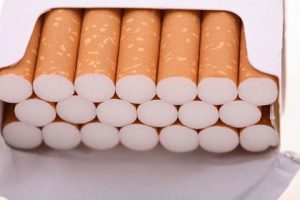
The Antimonopoly Committee of Ukraine has opened a case on the fact that ProZorro.Sale state enterprise had established additional terms of the contract and payment for access by operators of authorized electronic platforms to the electronic trading system ProZorro.Sale.
“The case was initiated on the statements of one of the operators, who complained about the unreasonable increase in fees for the development of the electronic trading system and the provision of access to ProZorro.Sale only after additional conditions are met,” the statement on the official website of the Antimonopoly Committee of Ukraine reads.
It is indicated that the state-owned enterprise requires a certain fee for the development of the electronic trading system, however, the AMCU has reason to believe that its size is not economically justified.
The committee also found out that ProZorro.Sale state enterprise provides operators with access to the ProZorro.Sale trading system only if they fulfill additional marketing obligations that do not directly relate to the subject of the access agreement and aim to promote the trading system.
The AMCU noted that back in 2021, the committee began to study the situation on the market for providing services for access of operators of authorized electronic platforms to the electronic trading system, which is used to conduct auctions in normatively defined areas.
As a result of the adoption of control measures, recommendations were provided to ProZorro.Sale aimed at eliminating the above problems. However, the state-owned enterprise has not taken comprehensive steps to prevent possible negative consequences for the competitive environment.
Now, in case of evidence of the negative impact of the actions of ProZorro.Sale on competition in the market, the company may face a fine of up to 10% of income per year preceding the decision on the violation.
The net income of the state enterprise in 2021 increased by 2.7 times, to UAH 141.81 million, and its net profit increased to UAH 42.43 million from UAH 950,000 in 2020.
In the first half of 2022, the revenue of ProZorro.Sale decreased by 36.3%, to UAH 25.14 million, and its net loss amounted to UAH 6.92 million against UAH 550,000 of net profit for the first half of 2021.

The Antimonopoly Committee of Ukraine (AMCU) will consider a possibility of the acquiring of agro-trading firm Agro-Dilo LLC (Pervomaisk town, Mykolaiv region), a subsidiary of the international holding ED&F Man, by Deimanivsky Dar LLL (village of Deimanivka, Poltava region), part of the agricultural holding A.G.R. Group.
The relevant issue is contained in an agenda of a meeting of the state regulator on January 27.
According to the A.G.R. Group, Deimanivsky Dar is part of the Hrebinka cluster in Poltava region. In addition to this region, the group of companies cultivates land in Kyiv, Chernihiv and Sumy regions, all grown products are sold on foreign markets.
The total land bank of the agricultural holding is up to 33,000 hectares, it includes 20 companies. The main activity is cultivation and storage of grain crops, mainly corn and soybeans, as well as animal husbandry.
The founder and sole shareholder of A.G.R. Group and its member companies is Armenian citizen Misak Khidiryan.
ATF Agro-Dilo is a subsidiary of the international holding ED&F Man, one of the world’s largest suppliers of food, sugar, spices, coffee, animal feed and other types of food products. Agro-Dilo is mainly engaged in cultivation of grain crops.
In the company’s charter capital with a total amount of UAH 808.1 million, some 78.06% belongs to British company ED&F Man Treasury Management PLC, and 21.93% belongs to ED&F Man Ukraine Investments BV (the Netherlands).
ED&F Man Ukraine has been working in Ukraine since 2007. The company owns Zasilsky sugar refinery (Pervomaisk, Mykolaiv region) with a production capacity of up to 50,000 tonnes of sugar per year. ED&F Man is also implementing a comprehensive investment program for land irrigation in Kherson and Mykolaiv regions.
During its work in Ukraine, the company has invested more than $150 million in Ukrainian agribusiness.
Among the company’s clients in Ukraine: Coca-Cola Ukraine, Sandora LLC, Conti Group, Rosynka, Pervomaisk Dairy Products Canning Plant and others.

The Antimonopoly Committee of Ukraine (AMCU) on Tuesday fined a total of UAH 283.62 million a group of companies (Interstarch Ukraine LLC, PrJSC Dniprovsky starch-molasses plant, PrJSC Intercorn) related to the Roshen confectionery corporation, the beneficial owner of Oleksiy Poroshenko (son of the fifth President of Ukraine Petro Poroshenko).
“The fine was imposed for two violations of the legislation on the protection of economic competition through abuse of monopoly position in the national market for the primary sale of corn syrup and glucose syrups,” the committee said in a press release.
The committee claimed that the specified group unreasonably increased prices for molasses and syrups in April-June 2018, February-March 2019 and October 2020, and also set different conditions for equivalent agreements with buyers of this product during 2018-2020 without justified reasons.
During the investigation, which lasted a year and a half, the committee established that in 2018-2020 the group was the only producer of molasses in Ukraine and the largest and most powerful market participant with shares of 65.49% (in 2018), 93.86% (in 2019) and 79.75% (in 2020), with importers being the only competitors.
It was also found that the group is the only producer of corn starch in Ukraine with shares of 74.26% (in 2018) and 96.79% (in 2019).
“By analyzing the price behavior of the group, it was found that during 2018-2020, the price for the molasses and syrup increased and decreased by it haphazardly. The group carried out price exemptions for certain business entities (confectionery factories),” the committee said.
In particular, according to the committee, one of the buyers of molasses was offered low prices in an attempt to prevent the transfer to a competitor (importer) – Amylco LLC (Rostov region of the Russian Federation), as well as to prevent other buyers of molasses, which capacities located in the eastern part of Ukraine.
“At the same time, the committee established that at present, the Ukrkondprom association has begun to receive initiatives to impose a ban on the import of molasses from the Russian Federation. And on January 8, 2019, by government resolution No. 1154, the ban was introduced,” the committee said.
In addition, the committee revealed that the group applied various conditions in contracts for the supply of molasses with buyers without objectively justified reasons: the procedure for ordering and agreeing on the supply of goods, terms of payment for goods, sanctions, etc.
According to the committee, the group’s participation in vertical integration – from growing corn to producing confectionery products – could give Roshen a significant competitive advantage by purchasing molasses at lower prices than other confectioners.
As a result, the committee fined UAH 210.19 million Interstarch Ukraine LLC, UAH 47.46 million PrJSC Dniprovsky starch-molasses plant and UAH 25.98 million PrJSC Intercorn, and also ordered them to terminate violations.

The Antimonopoly Committee of Ukraine (AMCU) is investigating the formation of prices in the transportation market due to a sharp price rise for the services of the main players in the taxi market on the first day of lockdown, Head of the Northern Territorial Branch of the AMCU Oleksiy Khmelnytsky said on his Facebook page on Wednesday.
He said that on the first day of lockdown, the prices for taxi services of the three largest organizers of transportation via mobile applications simultaneously increased by 3-4 times, which is unacceptable.
“Already in the evening of April 6, taxi prices fell noticeably. It should be noted that the demand did not decrease [there were no less trips, the demand was constant] and lockdown was not canceled. This is the reaction of these companies to the indignation of Kyiv residents, the media and the AMCU’s reaction. I am convinced that companies can adjust prices on their own, not only automatically, given the critical situation with COVID-19 in Kyiv. Could there be any signs of violation of competition laws [on coordination of actions]? In my opinion, yes,” Khmelnytsky said.
He also said that the AMCU should definitely respond to a large number of appeals from Kyiv residents.
“We cannot ignore citizens’ appeals; that is why we launched our probe. This is the law […] In fact; the situation on the transport market [whatever you call it, for people it is taxi services] has not been studied by anyone. That is why we started the study. We will draw conclusions based on its findings,” he said.
At the same time, Khmelnytsky noted that the AMCU perfectly understands all the specifics of the work of programs and applications, which are rather difficult to control.
According to him, if, based on the findings of the study, the AMCU does not receive evidence of anticompetitive concerted actions of the largest market players, the committee will definitely inform about it.
“If we get evidence of a violation of competition legislation, we will open a case, make a decision and fine the violators. If it turns out that the legislation and rules do not correspond to modern technologies, we will turn to legislators with a proposal,” the head of the AMCU Northern Territorial Branch said.
As reported, on April 5, taking into account the imposition of strict quarantine, prices for taxi services, in particular in Kyiv, increased several times.
Bolt taxi ordering service (formerly Taxify) has decided to forcefully adjust the coefficient that affects the increase in cost during the period of increased demand.
Taxi ordering services Uklon and Uber told Interfax-Ukraine that their pricing systems depend on many factors, automatically taking into account the situation on the roads, weather conditions, demand and others.
ANTIMONOPOLY COMMITTEE, LOCKDOWN, TAXI, TAXI MARKET, TRANSPORT

On April 5, the Antimonopoly Committee of Ukraine (AMCU) launched an investigation into anticompetitive concerted actions on the primary sugar market against Astarta Group and Radekhiv Sugar LLC (Lviv region), the committee said on its website on Monday.
The state regulator said that over the past few months it had studied the situation when these companies, which together occupy a significant share of 40% to influence the Ukrainian beet sugar market, in September-November 2020, similarly increased wholesale selling prices for sugar by an average of 48%.
The committee said that it sees no objective grounds for such a price increase, since there was no sugar deficit in Ukraine at that time, taking into account the transitional reserves, import volumes and a decrease in domestic consumption. The committee said that the production of this product in Ukraine last year decreased by 22.3% compared to 2019, the yield of sugar beet decreased by 7.8%, its sugar content by 1.7%, and its sown area by 2.7%.
It is also specified that Astarta Group and Radekhiv Sugar similarly limited competition in the market, having received the opportunity to raise prices above the competitive level, although they are in different conditions of economic activity.
The AMCU said, citing data from the London Stock Exchange, that in September-November 2020, world prices for beet sugar did not grow as sharply as in Ukraine, and there were no significant fluctuations in foreign exchange markets or an increase in taxation.
“As part of the investigation, in addition to Astarta and Radekhiv Sugar, the committee is studying the actions of other manufacturers in this market. I emphasize that the AMCU will not limit itself to checking possible non-competitive actions in the sugar market. In the near future, we will investigate the situation in the markets of other socially important products, which have risen in price recently,” the press service said, citing head of committee Olha Pischanska.
Astarta is a vertically integrated agro-industrial holding operating in eight regions of Ukraine. It includes eight sugar factories, agricultural enterprises with a land bank of 243,000 hectares and dairy farms with 25,000 cows, seven elevators, a biogas complex and a soybean processing plant in Poltava region (Globino Processing Plant LLC).
Radekhiv Sugar LLC is one of the largest sugar beet producers in Ukraine with production facilities in Radekhiv (Lviv region), Chortkiv, Khorostkiv, Kozova and Zbarazh (all located in Ternopil region).
According to the data on the company’s website, Radekhiv Sugar is part of the Pfeifer & Langen Investments group of companies (Poland), which, except for a Ukrainian asset, also owns five sugar factories in Germany, shares in enterprises in Poland, Romania, Italy, Hungary, Slovenia and the Czech Republic.

The Pivnichny (Northern) Economic Court of Appeals on February 2 rejected the complaint of Imperial Tobacco Ukraine and Imperial Tobacco Production Ukraine against the decision of the Antimonopoly Committee of Ukraine (AMCU) on a fine of UAH 460 million on suspicion of anti-competitive concerted actions of cigarette manufacturers and distributors.
“Imperial Tobacco Ukraine and Imperial Tobacco Production Ukraine will appeal the decision of the Court of Appeals in the Supreme Court. In addition, the companies are simultaneously preparing to transfer the case to the international investment arbitration, because it is becoming increasingly clear that in Ukraine foreign investors cannot count on a fair trial,” the group of companies said in a press release.
According to Imperial Tobacco, the decision of the court is the result of political pressure.
“Unfortunately, the appellate link of the judiciary has demonstrated the same bias and political bias as the court of first instance. This development of events gives another alarming signal to the community of foreign investors about the real state of legal proceedings in Ukraine,” the press service of the company said citing director general of Imperial Tobacco Rastislav Cernak.
The company clarified that the fine of UAH 460 million was paid in full the day after the loss in the court of first instance – July 21, 2020, in order to prevent the accrual of additional penalties and to avoid further pressure on the company’s operating activities from the AMCU.